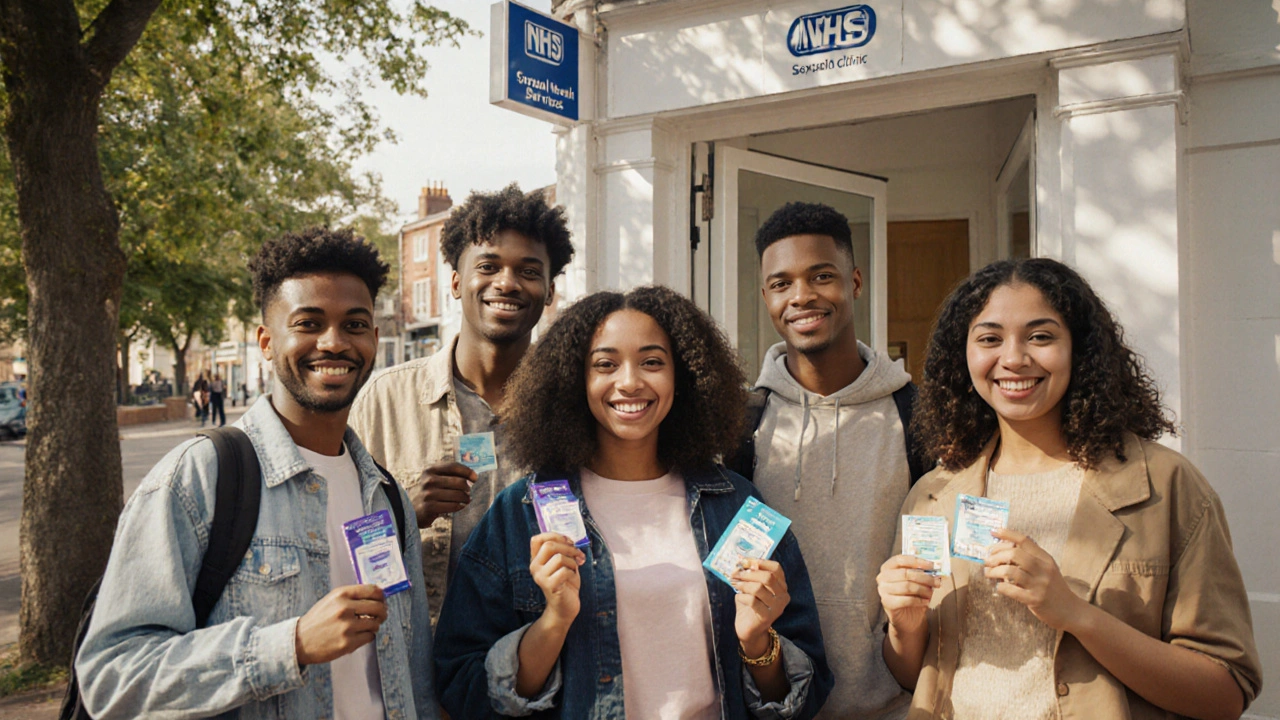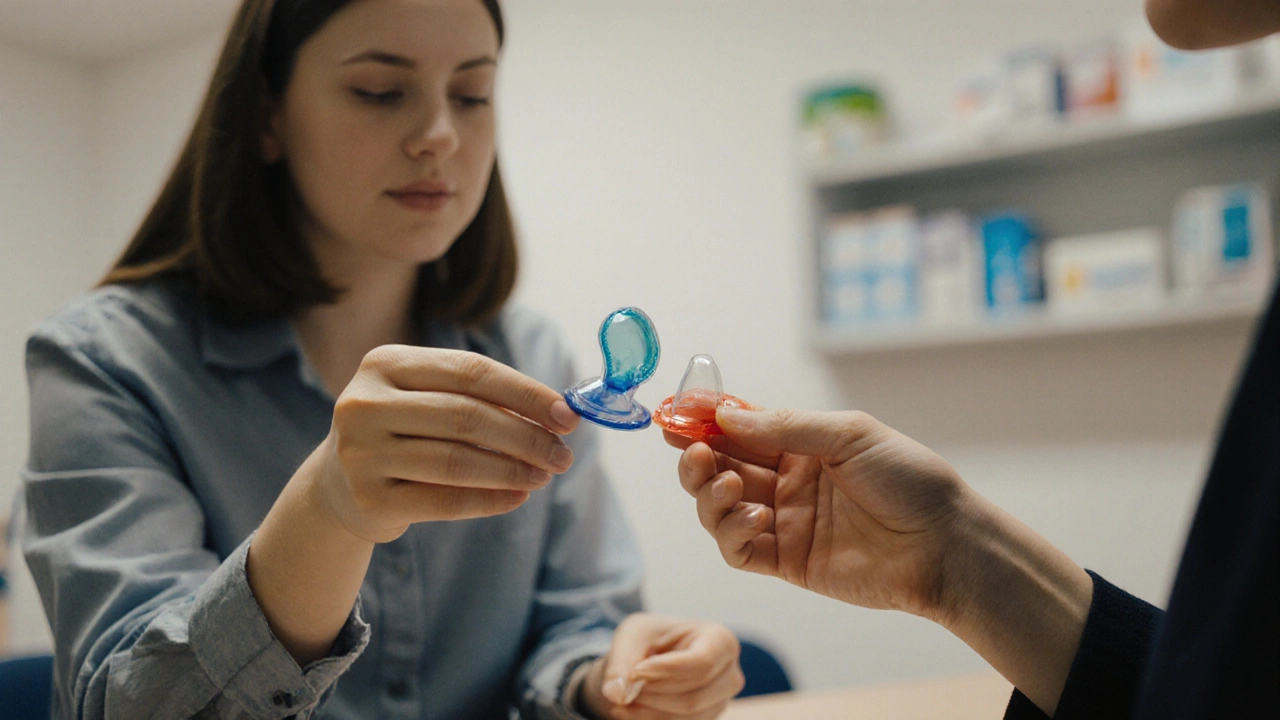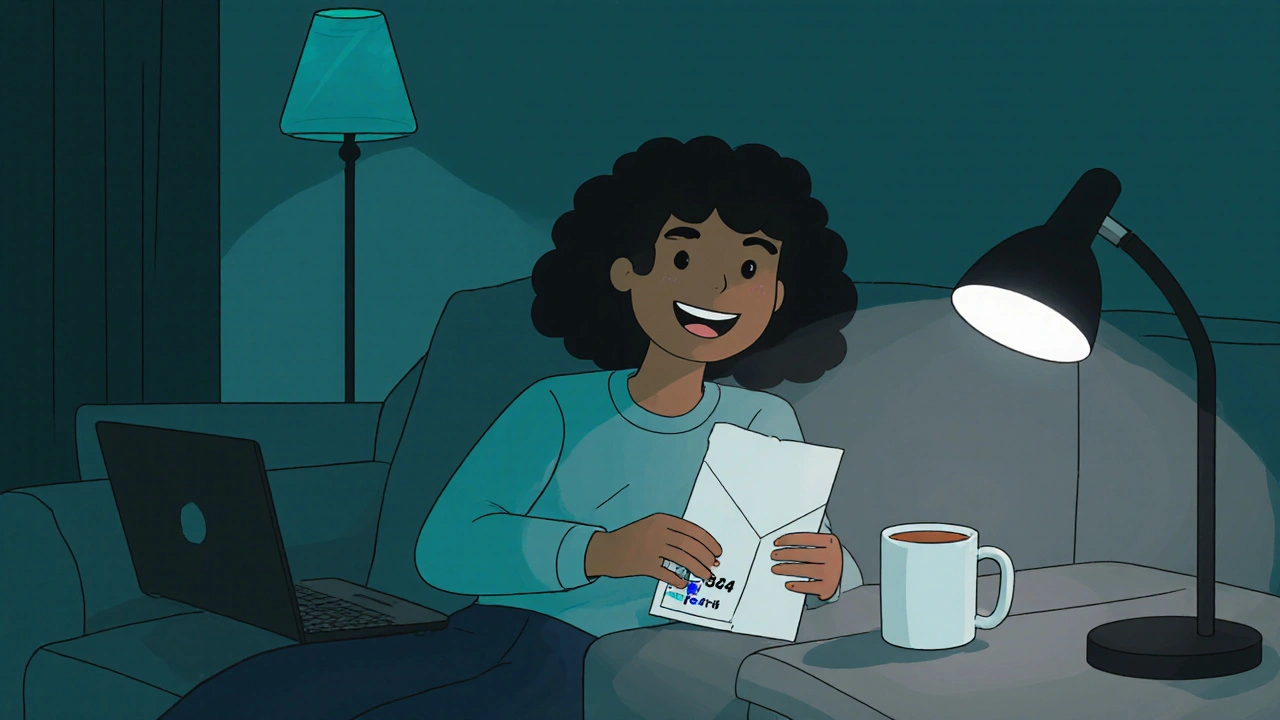
Every year, thousands of UK students walk into sexual health clinics feeling nervous, confused, or even ashamed. They’re not alone. Many think they need a reason to go - like symptoms, a partner’s diagnosis, or a scare. But the truth? You don’t need a reason. You just need to care about your body. And that’s enough.
What Sexual Health Clinics Offer Students
UK sexual health clinics are free, confidential, and designed for people like you - whether you’re 18 or 25, sexually active or just curious. They don’t judge. They don’t ask for your parents’ permission. And they don’t share your info with your university, GP, or anyone else unless you’re in serious danger.
Here’s what you can get at any NHS sexual health clinic:
- Free STI tests for chlamydia, gonorrhea, HIV, syphilis, and more
- Condoms and dental dams - no questions asked
- Emergency contraception (the morning-after pill) if you’ve had unprotected sex
- Birth control options, including pills, implants, and IUDs
- PrEP for HIV prevention - available free to those at higher risk
- Vaccinations for HPV and hepatitis A/B
- Counselling on relationships, consent, and sexual wellbeing
These services aren’t just for people with multiple partners. One in four young people in the UK will get chlamydia by age 25. Most won’t even know it. That’s why testing is routine - not reactive.
How Confidential Are These Services?
Confidentiality is the rule, not the exception. Clinics follow strict NHS guidelines. Your name, test results, and visit details are locked down. Even your GP won’t see them unless you sign a release form.
There are only two exceptions:
- You’re under 16 and at risk of serious harm (like abuse or coercion)
- You’re at risk of spreading a serious infection to others and refuse to tell partners
Even then, staff will try to help you tell someone first. They won’t go straight to authorities. Most students who’ve been through this say the privacy reassured them more than anything else.
Some clinics let you use a nickname or a code name when booking. Others give you a unique ID number instead of your full name. Ask - they’ll show you how it works.
How to Book a Visit - No GP Referral Needed
You don’t need a GP referral. You don’t need to be registered with a doctor. You don’t even need your NHS number.
Here’s how to book:
- Go to nhs.uk and search for "sexual health clinic near me"
- Click on the nearest clinic - most list walk-in hours and appointment slots
- Call or book online. Some let you book anonymously
- Arrive 10 minutes early. Bring a photo ID if you have one - but you don’t need it
Many universities also run on-campus sexual health services. Check your student portal or student union website. At places like UCL, Manchester, and Edinburgh, you can walk in during term time without booking. Some even offer after-hours slots for students with lectures or shifts.
Apps like SH:24 let you order free STI test kits by post. You collect a kit, do the test at home (urine sample or swab), send it back, and get results in 2-5 days via text or app. It’s not for everyone - but if you’re too nervous to walk in, it’s a solid first step.

What to Expect When You Walk In
First-time visitors often imagine a cold, clinical room with a stern nurse. That’s not it.
Most clinics look like a quiet GP surgery. You’ll sit in a waiting area with magazines, water, and maybe free condoms on display. When your name’s called, you’ll go into a private room with a trained advisor - not always a doctor. They might be a nurse, a health promoter, or a peer educator who’s been through it themselves.
They’ll ask:
- What brings you in today?
- When was your last sexual contact?
- Have you had any symptoms - itching, discharge, pain, sores?
- Are you using protection?
That’s it. No interrogation. No judgment. If you don’t know the answer, say so. They’ve heard it all.
Testing is quick. For most STIs, you’ll give a urine sample. Women might have a self-swab. Men might get a throat or rectal swab if they’ve had oral or anal sex. Blood tests for HIV and syphilis are done with a tiny finger prick - no needle.
The whole visit usually takes under 20 minutes. You’ll get your results by text, call, or app within a week. If something’s positive, they’ll walk you through treatment - often a single pill.
Why Students Skip Testing - And Why They Shouldn’t
Two big reasons students avoid clinics:
- "I don’t have symptoms." - But 70% of chlamydia cases show none.
- "I’m too embarrassed." - Clinics see hundreds of students every week. You’re one of many.
Left untreated, chlamydia can lead to infertility. Gonorrhea can cause chronic pain. HIV, if caught early, is manageable with daily pills. The longer you wait, the harder it gets.
And here’s the thing: testing isn’t just about you. It’s about your partners. One test can stop a chain reaction.
Students who test regularly say the biggest change isn’t physical - it’s mental. They feel more in control. Less anxious. More confident in their relationships.

What to Do If You’re Not in the UK
If you’re an international student, your rights are the same. NHS services are free to anyone living in the UK - regardless of visa status, nationality, or immigration history. You don’t need proof of address or residency.
Some clinics have interpreters or multilingual staff. Ask when you book. If you’re unsure, call NHS 111 - they’ll connect you to a service that speaks your language.
Even if you’re only here for a term, get tested. Don’t wait until you’re back home. Your health doesn’t pause for holidays.
Next Steps: Make It Routine
Don’t wait for a scare. Don’t wait for symptoms. Don’t wait until you’re "ready."
Make testing part of your yearly routine - like your dentist visit or your flu jab. If you’re sexually active, get tested at least once a year. If you have new partners, test before and after. If you’ve had unprotected sex, test within 14 days.
Keep condoms in your bag. Know where your nearest clinic is. Bookmark the NHS page. Talk to a friend about it. Normalise it.
Your body isn’t a secret. Your health isn’t something to hide. And you don’t need to suffer in silence to prove you’re "responsible."
Walk in. Get tested. Walk out. You’ve got this.
Do I need to be 18 to use a sexual health clinic in the UK?
No. Anyone under 16 can access sexual health services for free and confidentially in the UK. Clinicians follow the Fraser Guidelines, which allow them to provide care if they believe you understand the advice and it’s in your best interest. Your parents won’t be told unless you’re at risk of serious harm.
Can I get tested for STIs without going to a clinic?
Yes. Services like SH:24 and the NHS’s free postal testing kits let you order a test kit online. You collect it at a local post office or have it delivered. You do the test at home - usually a urine sample or swab - then send it back. Results come via text or app within 2-5 days. It’s not for every test (like HPV or syphilis), but it works for chlamydia, gonorrhea, and HIV.
Are sexual health clinics open during university holidays?
Most NHS sexual health clinics stay open year-round, including holidays. Hours might be reduced, so check the clinic’s website or call ahead. University-based clinics often close during term breaks, but nearby NHS clinics will still be open. You can always find one using the NHS website - just search "sexual health clinic near me."
Is PrEP really free for students in the UK?
Yes. PrEP (pre-exposure prophylaxis) is available for free on the NHS to anyone at risk of HIV - including students. You don’t need to be diagnosed with a specific condition. If you have multiple partners, don’t always use condoms, or have a partner with HIV, you qualify. You can get it at sexual health clinics or through your GP.
Will my university find out if I go to a sexual health clinic?
No. Your university has no access to your NHS medical records. Clinics don’t share your visit with anyone unless you give written permission. Even if you use your student email to book, your privacy is protected by NHS confidentiality rules. Your academic record, accommodation, or student support services won’t be notified.
What if I test positive for an STI?
You’ll be contacted by the clinic with your results and treatment plan. Most STIs like chlamydia and gonorrhea are treated with one or two pills. HIV is managed with daily medication that lets you live a normal life. The clinic will also help you notify partners anonymously - no names needed. They’ll support you every step of the way.
Can I get the HPV vaccine at a sexual health clinic?
Yes. While the HPV vaccine is usually offered in school, students up to age 25 can still get it for free at sexual health clinics. It protects against cancers linked to HPV - including throat, anal, and cervical cancers. Two doses are needed, six months apart. Ask when you book your appointment.